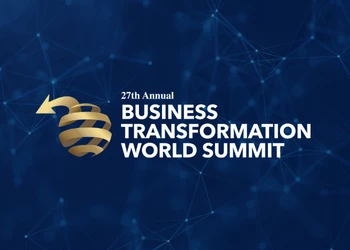Going Beyond ‘Respect For People’ (Part 2 of 2)
Add bookmark‘R-E-S-P-E-C-T - find out what it means to me!’ was the chorus of a spirited song belted out by soul singer extraordinaire Aretha Franklin back in the late 1960s. Following Aretha’s lead, what does ‘Respect’ mean to you? In Part 1 of this series, we explored what ‘Respect for People’ means from the perspective of Toyota’s key lean principle of the same name. We identified 5 specific aspects of Respect for People: Respect for the Front Line, Respect for People’s Ability to Think, Respect for People’s Ability to Grow, Respect for People’s Limits, and Respect for Humanity.
These topics are naturally all very people-focused and generally channel the mainstream understanding that Respect for People equates to ‘respect for employees’. But what important aspects of Respect exist beyond our staff? Is there a broader notion of ‘Respect’ that covers all of the corporate touchpoints and perhaps even society at large?
Interestingly enough, if we follow Toyota’s history they themselves have gone through an evolution that started with Respect for People (which could be extrapolated as generally addressing their own human resources) and transitioned to a much more fundamentally basic meaning of Respect, as currently evidenced by one of their 5 Guiding Principles: ‘Respect the culture and customs of every nation and contribute to economic and social development through corporate activities in their respective communities’. This article will examine what these additional dimensions of Respect may look like, beyond respect for employees, from the writer’s perspective.
Respect for Customers
Do you look at Customers merely as a revenue source, or as a real human being with real needs? Respecting Customers is not just a matter of treating them courteously, it is respecting their needs, desires and perspectives. It is respecting their right to a good experience and high quality. This degree of respect creates a deep understanding of them, how they use products and services, what delights them and what confounds them, often leading to a richer quality of service, higher customer retention and increased business performance.
Gandhi once said: “A customer is the most important visitor on our premises. He is not dependent on us. We are dependent on him. He is not an interruption of our work. He is the purpose of it. He is not an outsider of our business. He is part of it. We are not doing him a favor by serving him. He is doing us a favor by giving us the opportunity to do so.â€
But if we deeply examine how we actually design and execute our work, it may reveal a superficial notion of respect for customers. While there is a somewhat sturdy appreciation for the polite treatment of customers, we often fundamentally treat Customers as a transaction, a mere means to collect money. Our business processes are usually designed for what is easiest and best for us, not for the customer. We typically do not measure ourselves the way customers measure us, and KPIs and Organizational Silos are often to the detriment of customers. We even use language such as ‘acquisitions’ and ‘target customers’ that seem more suited for warfare than for a positive customer outcome.
Jeff Bezos has said, ‘we start with what the customer needs and we work backwards’. Respect for Customers is an end-to-end, holistic approach to designing the entire organization – its structure, its processes, its KPIs, its attitudes, etc – towards the deep understanding of Customer Value and the most effective way of delivering it. This is in many respects the embodiment of Lean Thinking.
If you treat a Customer as a transaction, that is all they will ever be.
Respect for Stakeholders
While we have previously discussed Respect for People in the context of internal staff, we must not neglect the extended network of stakeholders, many of them often a key factor in determining an organization’s success or failure. Internal stakeholders can include other departments, functions and divisions. External Stakeholders can include suppliers, franchises, dealers, government agencies, non-government bodies, etc. Respecting stakeholders means gaining an appreciation that they have their own interests, needs and positions. It does not mean that we will always meet every one of their requirements, but it does mean that we have taken some time to actually consider their point of view.
A great example of Respect for Stakeholders is the way that Toyota handles its supplier relationships. Toyota views suppliers from a strategic standpoint and thus genuinely considers them as long-term partners. They understand that suppliers have an intrinsic need to grow and thrive and see it as their role to help suppliers develop and improve their capabilities. This focus on improvement helps both Toyota and the supplier be successful in a truly win-win partnership model. Many other companies typically view a supplier as merely a tactical provider of product or service, someone to be ordered around and freely punished for not meeting deliverables. They try to squeeze every last penny possible from suppliers, with very little respect given to their own financial needs and well-being.
Sir Paul Smith, founder of the ultra-successful Paul Smith fashion retail enterprise, believes in mutual respect between him and his strategic partners. One of the aspects to this principle of mutual respect is that, unlike common industry practice, the company does not demand minimum orders from independent retailers, giving them the ability to prevent overstocks of certain brands and lines (which in itself is a huge form of Waste for the retailers and for society). This small yet not insignificant sign of respect for the financial well-being of his retailers has earned Sir Paul a reputation of being a fair businessman, and in turn has become a strategic advantage for consistent and high-performing partnerships that has paid off well for his company.
Toyota also expects aggressive cost reduction performance from its suppliers but it tends to work WITH the suppliers to improve their capability so that they can then improve themselves. They are in essence respecting the supplier’s strategic position and ability to develop. Some time ago, Toyota somewhat famously formed the ‘Toyota Supplier Support Center’, whose mission was to develop the capability of suppliers mainly through the usage of lean techniques and workshops where the TSSC and supplier would jointly work on a real problem or improvement opportunity. By improving the work processes, they not only increase business results mutually but also grow people’s capability to solve problems and improve for future performance gains.
We can perhaps say that without Respect there can be no Nemawashi (the act and habit of listening to and gaining consensus among stakeholders), and without Nemawashi there can be no collaboration or deep partnerships, both which are essential to sustainably high performance results.
Respect for Diversity
There is an old French saying, Vive la Difference! – Long Live Differences. Respect for Diversity is the fundamental respect for anyone who does not look, think or act like you. It includes ethnic diversity, religious diversity, gender diversity, age diversity, industry diversity, idea diversity, and more. In the most essential sense, Respect for Diversity is also Respect for Humanity. It is saying: ‘I understand that we have some kind of difference between us, but I would like to acknowledge your existence, be aware of your underlying identity, understand your basis of thought and appreciate that your different perspectives can enrichen our work’.
Aretha Franklin herself is a splendid example of the power of diversity. Shunning a largely male-dominated profession of musicians and society at large, this African-American female burst onto the stage with confidence, spirit and dynamism, turning the entire industry upside-down. The result? She provided all of humanity with the richness of her voice, sweetness of her song, and inspiration for her actions, for as long as time itself will allow.
How can a team, whether at the front line or board level, succeed if everyone thinks exactly the same? Embracing the entire slice of life can provide a richer understanding of the needs of employees, customers, partners and other key stakeholders. This can lead to better work which should result in increased performance, as evidenced by a McKinsey report noting that ‘US public companies with diversity on their executive board have a 95% higher return on equity than those without’.
Diversity is the entire gamut of humanity – without it, it’s like looking through a prism with only one color or utilizing only one band of the whole spectrum. The failure to embrace diversity is a self-inflicted weakness. Respect for Diversity is not only the right thing to do for society, it also leads to the right insights, the right ideas and the right results.
Respect for the Community
Some companies have learned the hard way how important it is to respect the communities they are operating in. In 2004 a Coca-Cola bottling plant in Kerala, India, was forced to shut down for excessive water consumption. Since then, Coca-Cola and others have faced continued resistance from activists and farmers in India on issues ranging from water usage to pesticide levels, resulting in mass protects, operational delays, numerous lawsuits and entire plant closures.
When we respect the communities we engage in (either directly or indirectly) we are respecting society at large, as society is an amalgamation of many communities, and communities reflect the basic needs of people – decent work, clean water and air, safety and security. Many companies have community outreach programs where employees volunteer for various activities such as helping comfort the elderly or interact with those requiring physical or mental support. Sometimes though, these activities turn into ‘team building events’ that seem more geared towards the needs of the employees than towards those needing help. As well-intended these actions are, they but just touch the tip of the iceberg in terms of deep respect for communities.
True Respect for the Community is derived when we truly listen to the needs of the communities, treat them as a Stakeholder and engrain all of this into the business strategy itself. At minimum, employee volunteer programs should be ‘skill-based’ - for example an IT company helping an orphanage with technology-based solutions or a services company helping to improve the internal processes of an NGO to positively impact overall effectiveness. Some of these actions could even be under the guise of Social Enterprises – it is not wrong to make a profit from work that is helping to contribute to society.
In addition, it has been established that the younger generation feels a stronger connection towards more meaningful, purpose-driven work. Forbes has reported that 45% of young people would ‘take a 15% pay cut for a job that makes a social or environmental impact.’ Thus, Respect for the Community is also a great way to ensure Talent Attraction and Retention.
Learning from the past, some companies have started to make community issues part of their strategic goals. Coca-cola has a goal to become globally ‘water-neutral’ by 2020, claiming that in 2014 it replenished 94 percent of the water used in its finished beverages.
When we respect our communities, goodwill is created, trust is cultivated, and employees feel more engaged in meaningful work – this leads to greater brand value, talent retention and higher performance. At the very least, the risk of large community mishaps is mitigated. And in the final analysis, it is society that ultimately decides the fate of the corporation.
Respect for the Planet
It could be said that the planet is the ‘silent stakeholder’ -- until it is not! Whether it is warmer temperatures, rising sea levels, natural disasters, air quality issues or clean water availability, companies are starting to understand that the planet is not impregnable and its resources are not infinite. Not respecting these facts can either directly or indirectly impact their performance. Rivers do not care about national borders, the air does not acknowledge legal entities, and vicious storms are not bound by corporate policies.
Supporting the principle of Respect for the Planet is the notion of Creating Shared Value (CSV), as highlighted at Harvard. CSV suggests that rather than a short-term view of convenient profits, companies should focus on the long-term generation of economic value in a way that produces results for both the corporation and society. ‘A shared value approach reconnects company success with social progress’, says Harvard Business Review. Companies such as Nestle and Unilever have come to understand the long-term repercussions of environmental and societal neglect in terms of brand reputation, shareholder concerns, employee passions and the bottom-line P&L performance. They have embraced Shared Value as a strategic approach that benefits society while also improving profits, though progress is still in its infancy. The notion of CSV also aligns perfectly with Lean Thinking, as one of Lean’s main precepts is to create more perfect value for customers through the elimination of waste (in this case, natural resources).
3P or Tri-Sector Partnerships (mutual collaboration between the Public, Private and Civil sectors) is a wonderful way to help achieve Respect for the Planet. Recognizing that no one sector can help with issues on a planetary scale, this approach is increasingly being used to tackle large and complex problems that cross sectors, disciplines and nations. Perhaps the combined use of Tri-Sector Partnerships, Creating Shared Value and Lean Thinking can go a long way towards ensuring that our homeland is available for many generations to come.
Conclusion
The chorus in Aretha Franklin’s song also includes the line: ‘R-E-S-P-E-C-T’ – take care, T-C-B oh’ T-C-B meant ‘Taking Care of Business’. Indeed, the basic idea of Respect should be incorporated into the way we take care of business. It is actually the underlying principle for everything an organization does – internally and externally - because Respect leads to awareness, which cultivates understanding, that breeds collaboration, which brings success.
‘Respect’ is not just a textbook fantasy but a practical, tangible and results-orientated management philosophy that also incorporates the full spirit and intent of social responsibility. Institutionalizing the habit of Respect into the corporate DNA will not only see an organization’s performance increase, but in doing so they will also build up the prosperity of the communities they impact and perhaps even contribute to the sustainable existence of our planet itself.
Companies such as Toyota that have continually embraced the idea of Respect can not only feel good about their contribution to employees, to stakeholders, to society and to the environment, they can also feel good about their sustainably high business results.
Aretha said, ‘All I’m asking is for a little respect’ – aren’t we all?
References:
http://www.hotelierindia.com/reinforcing-respect/
https://www.lean.org/womack/DisplayObject.cfm?o=755
https://www.cnbc.com/2015/01/26/working-more-than-50-hours-makes-you-less-productive.html
https://hbr.org/2013/12/how-diversity-can-drive-innovation
https://www.corpwatch.org/article.php?id=15963
https://hbr.org/2011/01/the-big-idea-creating-shared-value




















